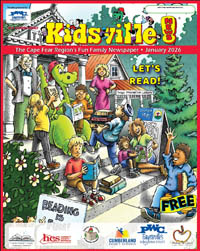 My father was a lifelong Fayetteville resident. He, like millions of other American men, was drafted into the United States Army. All were changed by their service with fellow soldiers from vastly different places, with different points of view and different ways of life. My father’s military friends included a businessman from the garment district in New York City, a midwestern corn farmer, and someone from New Orleans whose background I never knew. They would never have crossed paths without shared service, but they nurtured these friendships throughout their lives, with shared experiences and a love of our nation being the glue holding them together.
My father was a lifelong Fayetteville resident. He, like millions of other American men, was drafted into the United States Army. All were changed by their service with fellow soldiers from vastly different places, with different points of view and different ways of life. My father’s military friends included a businessman from the garment district in New York City, a midwestern corn farmer, and someone from New Orleans whose background I never knew. They would never have crossed paths without shared service, but they nurtured these friendships throughout their lives, with shared experiences and a love of our nation being the glue holding them together.
We are now a divided nation, with few common experiences, military or otherwise. Today, although it does not feel this way in our community, less than 1 percent of Americans are on active military duty, and many Americans do not know anyone serving or who has served. Military service is no longer a common experience.
Both talking heads and everyday Americans see that we are now either red or blue, with only a tad of purple. We all wave the American flag, then take it home, and lock our doors and our minds. We watch programs and read publications that reflect our world views back to us, and we associate with people who think like us and avoid people who do not. People, unlike us, are now “the other,” with all of us spinning off into our own orbits.
Increasingly, I see mandatory national service for young Americans as a way to provide a common experience at the beginning of adulthood, a formative time of life in all societies. It could take many different forms with a year or so of service by all able young Americans, including military, educational, health-care related, environmental, agricultural, social, or cultural. It could include existing organizations like Teach for America, Americorps, and other national, regional, and local organizations. Such service could point young people in career directions. Options are fluid and endless.
The point is not what our young people do but that they do something both for themselves and for their country. The point is that young people pause and think not so much about themselves as about their communities and our nation. The point is that we remix and spread our national glue, creating common experiences and bonds for future generations like the ones my father’s generation treasured.
None of this would be easy, of course.
Critics of the notion cite individual liberty concerns. Some say the burden of service could fall disproportionately on disadvantaged young people, as the draft did when it was the law of the land. And then there is the cost and the bureaucracy required to administer such a large national program. In addition, some fear broad mandatory service could hurt military requirements. Each of these is a valid concern, but 10 European nations already require military service by men, and several encourage women to serve, with others moving toward conscription for women. Nations elsewhere in the world require non-military service, and Great Britain and France are both working on similar programs for teenagers.
In other words, we are a bit late to this party.
Like many other Americans, I fear for the future of our nation and believe to my core that we must find common ground, work for common goals, and see each other for what we are, Americans. This matters less for older Americans, but it matters enormously for our young people.
If we cannot, or if we do not, I fear that poet W. E. Yeats will be right—-that “the centre cannot hold.”
Working to reconstruct common ground
- Details
- Written by Margaret Dickson

 How to resolve AdBlock issue?
How to resolve AdBlock issue? 








